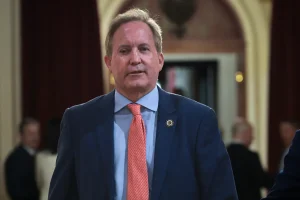Meta Abandons Independent Fact-Checking, Sparking Concerns Over Misinformation and Political Influence
Meta, the parent company of Facebook, Instagram, and WhatsApp, has abruptly terminated its partnerships with independent fact-checking organizations, leaving journalists and non-profits blindsided and raising alarms about the spread of misinformation on its platforms. The decision, announced without prior notice to many of its partners, marks a significant shift in Meta’s content moderation strategy and has drawn criticism for its potential to exacerbate the proliferation of false and misleading information. The move has been linked to the appointment of Joel Kaplan, a former senior advisor to President George W. Bush, as Meta’s new global policy chief.
The program, which Meta claims to have invested $100 million in since 2016, encompassed a network of fact-checkers spanning 115 countries. These organizations, including prominent names like USA Today, Reuters Fact Check, AFP, and Politifact, played a crucial role in identifying and debunking false or misleading content shared on Meta’s platforms. The termination of these partnerships effectively dismantles a critical layer of defense against misinformation, leaving a void that critics fear will be difficult to fill. Contracts with US-based organizations are set to expire in March, while international partners have been given a reprieve until the end of the year.
Fact-checkers expressed shock and dismay at the sudden announcement, emphasizing the lack of prior consultation and the abrupt nature of the decision. Some had even recently signed contract extensions with Meta, underscoring the unexpected nature of the move. The decision, announced in a blog post by Kaplan, framed the existing content moderation policies as overly complex and amounting to censorship. This characterization has been met with strong pushback from fact-checkers, who insist their work has never involved censorship or removal of posts. Their role, they emphasize, has been to provide context and debunk false claims, not to stifle free speech.
The sudden shift in Meta’s content moderation strategy raises concerns about the influence of political considerations and the potential for a resurgence of misinformation on the platform. The timing of the decision, coupled with other recent policy changes, suggests a concerted effort by Meta to appease the incoming Trump administration. These changes include relocating the content moderation team to Texas, relaxing rules around hate speech, and appointing prominent Trump supporter Dana White to the board of directors. Trump himself praised the changes, fueling speculation that Meta’s decisions are directly influenced by his prior criticisms and threats.
While Meta justifies the change as a move towards community-based content moderation, critics argue this approach is insufficient to combat the sophisticated tactics employed by misinformation actors. They argue that the expertise and resources of independent fact-checkers are essential to effectively identify and counter the spread of false information. The loss of this vital layer of scrutiny could have far-reaching consequences, particularly in the context of upcoming elections and other critical events where misinformation can have a significant impact. The absence of independent fact-checking leaves a vacuum that could be exploited by malicious actors, creating a breeding ground for conspiracy theories and potentially inciting violence.
The decision also sets the stage for a potential conflict with European regulators, who have expressed concerns about Meta’s moderation practices. The European Union’s Digital Services Act imposes strict requirements on platforms to address illegal content, and Meta’s shift could potentially run afoul of these regulations. Zuckerberg has signaled a willingness to challenge European regulations, suggesting a potential clash between Meta’s policies and the EU’s commitment to combating misinformation. This divergence in approach could lead to legal challenges and fines, further complicating Meta’s already complex regulatory landscape. The long-term implications of Meta’s decision remain to be seen, but the initial reaction from fact-checkers, regulators, and other stakeholders suggests a growing concern about the potential for a significant increase in misinformation and its impact on public discourse.






